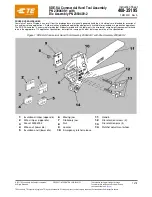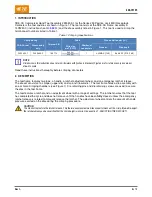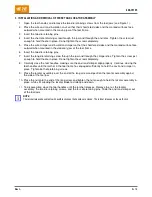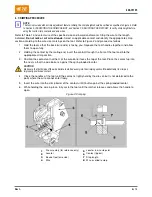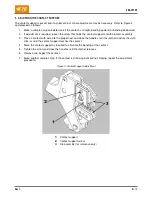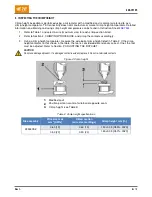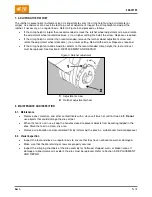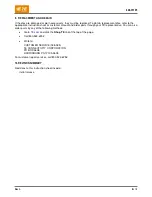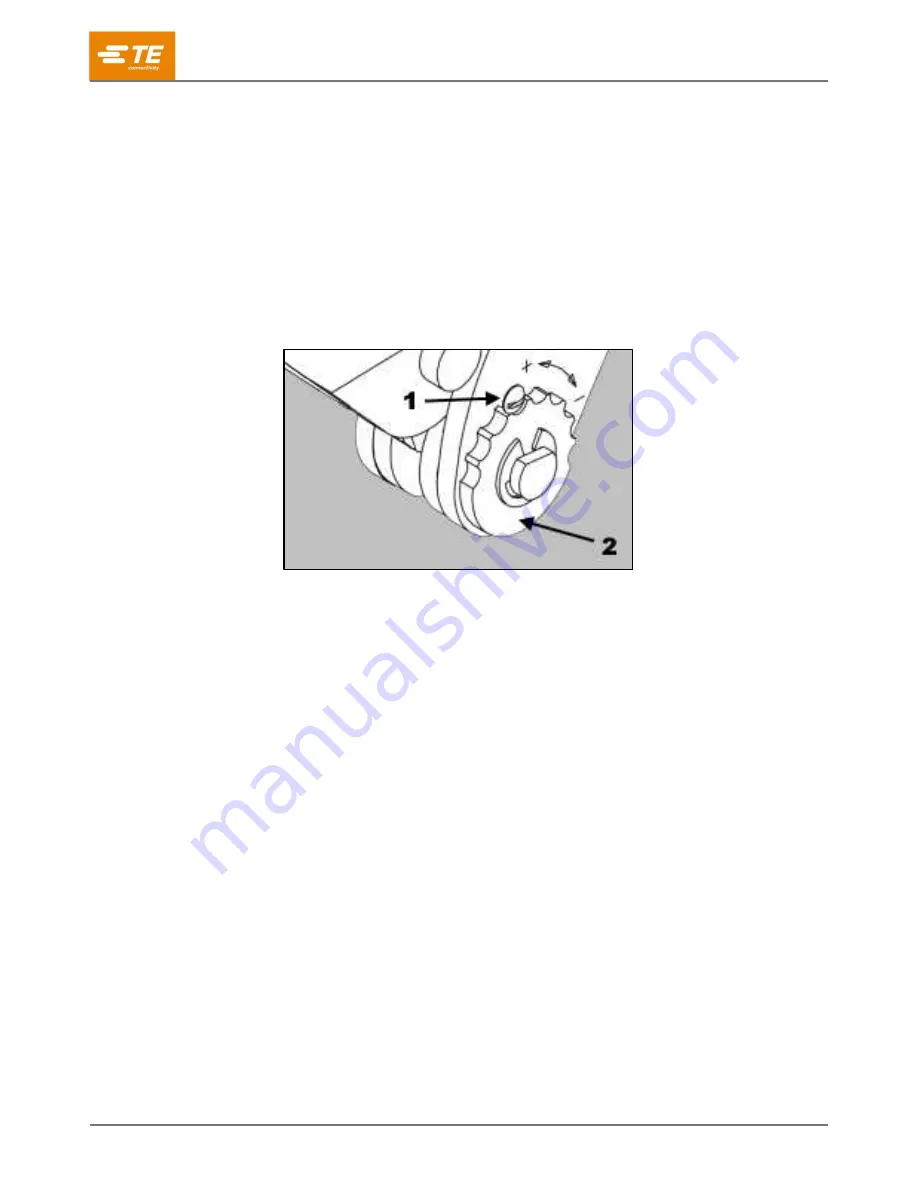
408-35195
Rev
A
7
of 8
7.
ADJUSTING THE RATCHET
The ratchet is preset prior to shipment, but it is important to verify the crimp height using a micrometer or
caliper. Use and wear can cause the tool to go out of adjustment. Inspect the crimp height and adjust the
ratchet, if necessary, on a regular basis. Refer to Figure 5 and proceed as follows:
If the crimp height is larger than recommended, remove the ratchet wheel adjustment screw and rotate
the adjustment wheel counterclockwise (+) to a higher setting. Reinstall the screw. Repeat as required.
If the crimp height is smaller than recommended, remove the ratchet wheel adjustment screw and
rotate the adjustment wheel clockwise (-) to a lower setting. Reinstall the screw. Repeat as required.
If the crimp height cannot be made to conform to the recommended crimp height, the tool or die set
must be replaced. See Section 9, REPLACEMENT AND REPAIR.
Figure 5: Ratchet adjustment
1
Adjustment screw
2
Ratchet adjustment wheel
8.
MAINTENANCE AND INSPECTION
8.1.
Maintenance
Remove dust, moisture, and other contaminants with a clean soft brush or soft lint-free cloth.
Do not
use objects that could damage the dies or tool.
When the tool is not in use, keep the handles closed to prevent objects from becoming lodged in the
dies. Store the tool in a clean, dry area.
Remove all lubrication and accumulated film by immersing the dies in a suitable commercial degreaser.
8.2.
Visual inspection
Inspect the tool and dies on a regular basis to ensure that they have not become worn or damaged.
Make sure that the die retaining screws are properly secured.
Inspect the crimping chambers of the die assembly for flattened, chipped, worn, or broken areas. If
damage or abnormal wear is evident, the dies must be replaced. Refer to Section 9, REPLACEMENT
AND REPAIR.

